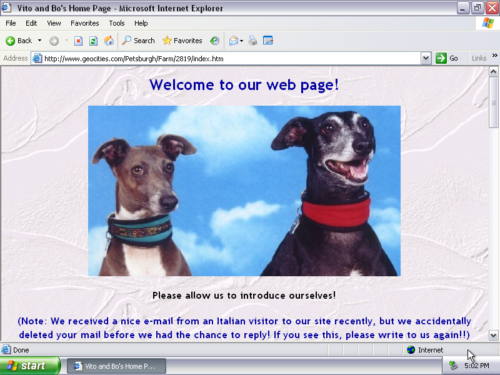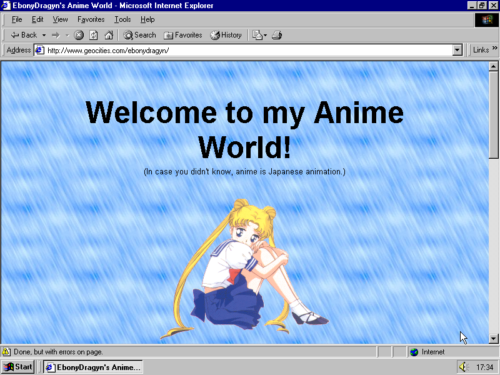The most beautiful thing about a blog is that most of us don’t write blogs to become famous or make money. We write blogs simply because we are enthusiasts and nerds and hobbyists, and our little home in this vague corner of the internet is where we go to be, in a sense, fully ourselves, a safe place where we can go full nerd with a community of fellow nerds in tow.
*

I know, I know, I’m gonna talk about the good old days again.
But really, life as an early internet person was a lot of fun. There was always this feeling of childish excitement and this sense that really interesting things were waiting to be discovered just around the corner, a hyperlink or two away. People living halfway across the world from us, in Belgium and Iceland and the very far ends of Vladivostock, were making things they wanted to make just for the heck of it — websites and blogs were born out of hobbies, not ambitions. We were all amateurs making crude, ugly but heartfelt internet objects out of our laughable HTML skills. It was FUN because we were all amateurs together and there were no rules and no expectations and, of course, very little aesthetic sense. It was a pretty level playing ground.
You could say that before we lost our innocence, citizens of the early internet were mostly wide-eyed kids wandering around trying things out and being playful, whereas today the internet is filled to the brim with calculative, serious adults hunkering down to create projects that they hope to eventually monetize.

If you are, like me, nostalgic for the good old internet days (and I have been for the last ten years), you will be fascinated by this, the Geocities research blog by Olia Lialina and Dragan Espenschied. It’s a Tumblr page that collects screenshots of old Geocities home pages. Here’s a bunch of the most popular screenshots.
I love what Olia Lialina wrote of the old World Wide Web in her talk/essay “A Vernacular Web”:
To be blunt it was bright, rich, personal, slow and under construction. It was a web of sudden connections and personal links. Pages were built on the edge of tomorrow, full of hope for a faster connection and a more powerful computer. One could say it was the web of the indigenous…or the barbarians. In any case, it was a web of amateurs soon to be washed away by dot.com ambitions, professional authoring tools and guidelines designed by usability experts.
I know we can never time travel back to the days before we lost our internet innocence, but we can remind ourselves that we always have the permission to be hobbyists and amateurs, whether on the internet or not, and that we never need to feel guilty spending ungodly amounts of time playing and tinkering and being immersed in whatever we’re interested in. In fact I cannot think of a better way to live, to be always curious and having fun.
So I say, hobby above ambition (and monetization/productivity/optimization). Always.
Further interesting reading about the old web (although the article itself is already 13 years old today): “Vernacular Web 2” by Olia Lialina.

